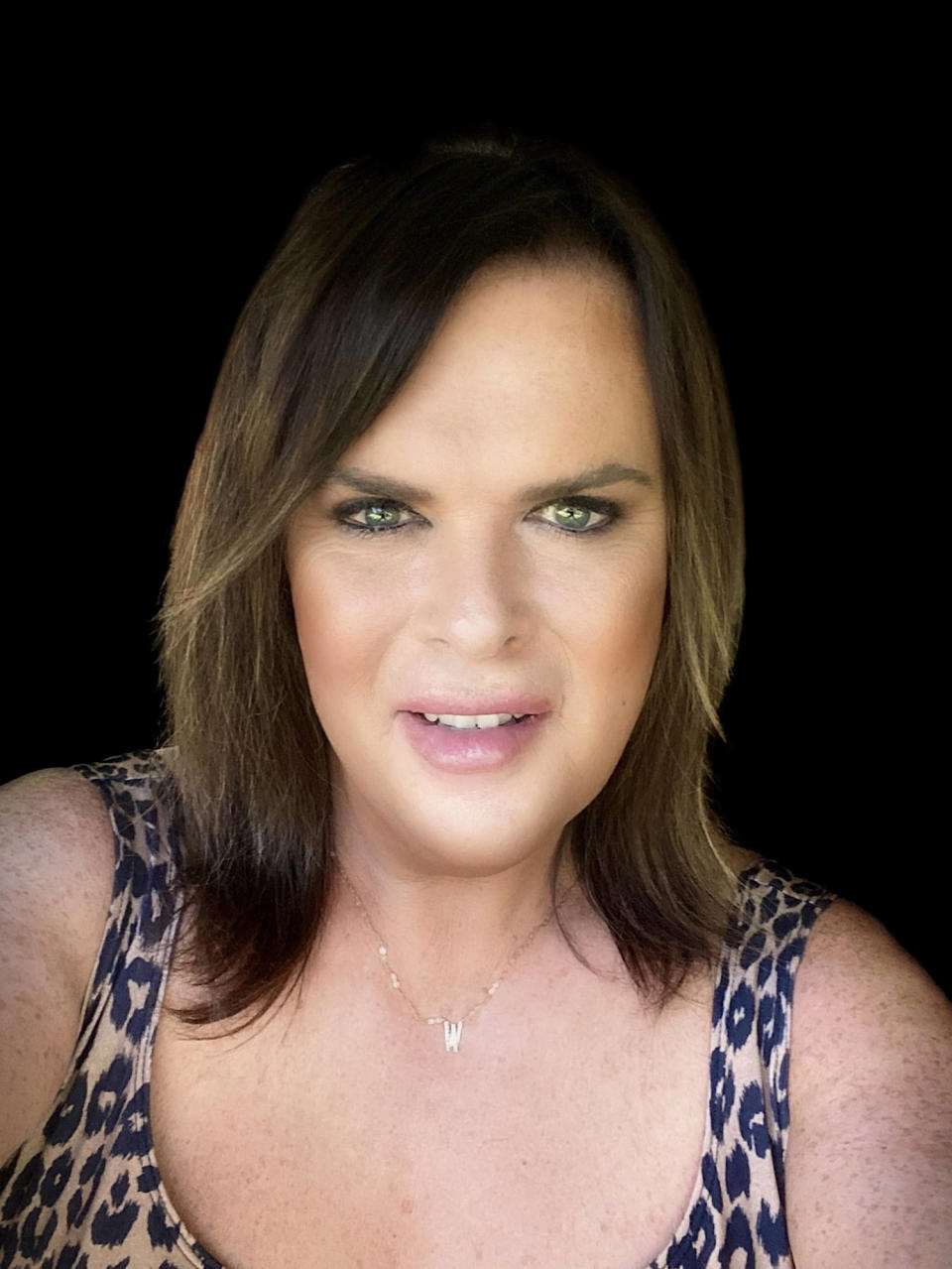A CEO in her 50s, she was scared to publicly transition. She didn’t expect what came next
Six years ago, Wynne Nowland, then 56, waited in her car outside her office, becoming more and more worried. She had publicly transitioned and was going to re-introduce herself to her co-workers. For a moment, she paused to give herself a pep talk.
“I’m saying to myself, ‘OK, you have to get out. You have to do this now. The Band Aid is ripped off, you have to do it,’” the CEO from Long Island recalled to TODAY.com. “I was tremendously anxious at that moment.”
As soon as she stepped into the lobby, those fears began dissipating.
“A few of my co-workers were coming out of the ladies room, and they came over and hugged me and were so sweet to me and caring that that anxiety melted away,” she said.
Since she was about 7 years old, Nowland knew she was female but didn’t transition for decades. That meant she had years to become comfortable with the idea of what she'd look like after gender affirming care. But she understood it could also mean other people in her life would take longer to adjust.
“It didn’t take me a long time to get used to it because this is how it always felt,” Nowland said. “But to your friends and co-workers and the owner of the butcher that you go to once a week or the waiter at your favorite restaurant, they’ve known you as a certain gender for years and years. … You’re all of a sudden looking very different.”
However, Nowland felt struck by how supportive everyone in her workplace was, from co-workers to vendors to clients. She believes it's because people appreciated her and simply wanted her to be happy. Some of the people she thought might have been the least supportive because of their politics became some of her biggest boosters.
“Most times, people have these opinions on a relatively uninformed basis, specifically dealing with trans people. They’ve never met a trans person before,” Nowland said. “(My colleagues) knew the person I was before, and in many cases I had helped them in their careers and their success. So even if they might not have understood what I was doing, they gave me the benefit of the doubt.”
Nowland thinks that knowing her has helped them continue to confront some of their biases.
“I have taught them, and as time goes on, some of them understand it more and really have become true allies,” she said.
Nowland wanted to share her experience with transitioning because it felt so supportive and affirming — something she knows that many trans people do not encounter.
“My story was really basically a positive one, and there’s no horror story,” Nowland said. “I certainly had all of those anxieties and fears, but again — this is just for me — they really turned out to be unfounded.”
Since then, Nowland has been moved by gender euphoria, little moments often taken for granted by people who aren't trans.
“I have a whole group of new friends that are cis women. Most of them for whatever reason happened to be younger than I am,” she explained. “These are just relationships that I treasure and value so much — never in a million years would I have thought that would happen. And my transition and my gender status is not even a blip for them. I’m just one of the girls.”
But Nowland also knows that her experience might be vastly different than others'.
“I had a very positive experience. Now, I also recognize that I come from a position of privilege,” she said. “I was able to use those things to probably make my transition a little easier for instance than some 20-year-old person of color who is coming out. It’s definitely a different experience for them than I had.”

Still, she wanted to share her experience to show the benefits of transitioning.
“People tend to be accepting of things and start to understand things when they become normalized,” she said. “If people get exposed to me and my experiences in the business world versus things that are out there in the media and in other sources, then I think it just helps normalize the process, and that can be beneficial.”
After five years, Nowland doesn’t often need to explain herself because so many people have embraced her, though she has encountered some clients who don't want to work with her because she’s trans. It’s a small group, and she's not too bothered by it, hoping that when people hear about her experience, they'll learn something.
“A trans person is just a person like everybody else. We want to get up in the morning, do our thing, have our friends, do our jobs and enjoy our life — just like everyone else wants,” Nowland said. “One’s gender identity really has nothing to do with who a person is. If you liked the person before, you’re going to like them afterward.”
This article was originally published on TODAY.com

